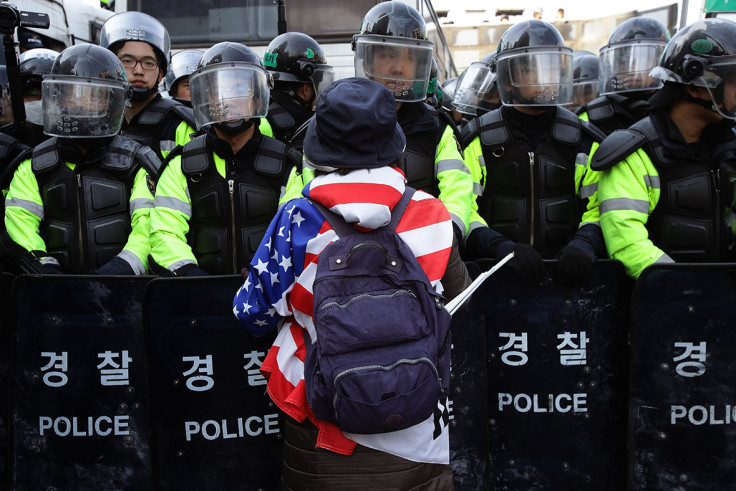China sheds no tears for Park Geun-hye as North Korea brands her 'a common criminal'
Pyongyang and Beijing were both angered by her missile deal with the US.

North Korean state media is rarely noted for its contemporaneous coverage of international breaking news, but when South Korea's president Park Geun-hye was removed from office after a constitutional court verdict on Friday the government operated KCNA had its take on the scandal within hours.
"She had one more year left as 'president' but, now she's been ousted, she will be investigated as a common criminal," the agency said.
Park, who has denied wrong-doing, was impeached over a scandal that has rocked the Asian nation to its core, drawing in some of the country's largest companies and allegations of corruption surrounding her close friend, Choi Soon-sil. It was alleged that Choi had unprecedented access to official documents and used her connections with Park to persuade firms to funnel millions of dollars into non-profits that she controls.
In North Korea, so often the subject of ridicule from media to the south, the scandal has been received with a certain amount of schadenfreude. Not least because it was under Park that South Korea agreed to host the US Terminal High Altitude Area Defence (THAAD) missile system, which was due to be operational by 2017. Washington views the missile system as essential in countering an increasingly boisterous Pyongyang.
And North Korea has not been the only country to revel in the woes of its neighbour to the south. China has been outraged by the decision of Seoul to deploy host THAAD and on 10 March its state airlines reacted by stopping flights to South Korea. Reuters reported that all Chinese travel operators – including cruise ships – have been given a verbal instruction to curtail or ban trip to the country.
South Korea's tourism and retail sectors are heavily reliant on Chinese business and the country sold over US$124 billion in goods and services to China in 2016, five times the amount it shipped to Japan and double that it exported to the US. China will now be hoping that a new South Korean leader, perhaps the more liberal Moon Jae-in – who is leading in the polls – will push back on the THAAD system.
For South Koreans in China, the increased tensions have been a challenge. Even Chinese state media have carried reports about South Korean residents in Shanghai and Beijing fearing leaving the house in the face of anti-THAAD and nationalist protests in China. On March 3, the Korean embassy in Beijing warned its nationals to avoid unnecessary arguments with locals.
An editorial in Global Times, a pro-Beijing newspaper, on Friday urged more sanctions against South Korean businesses in China: "We should start from increasing sanctions toward Seoul in an orderly way, comprehensively lower the level of Sino-South Korean exchanges, roll back all the privileges that Seoul has gained from China, and just maintain a normal relationship between the two," it said.
© Copyright IBTimes 2025. All rights reserved.






















